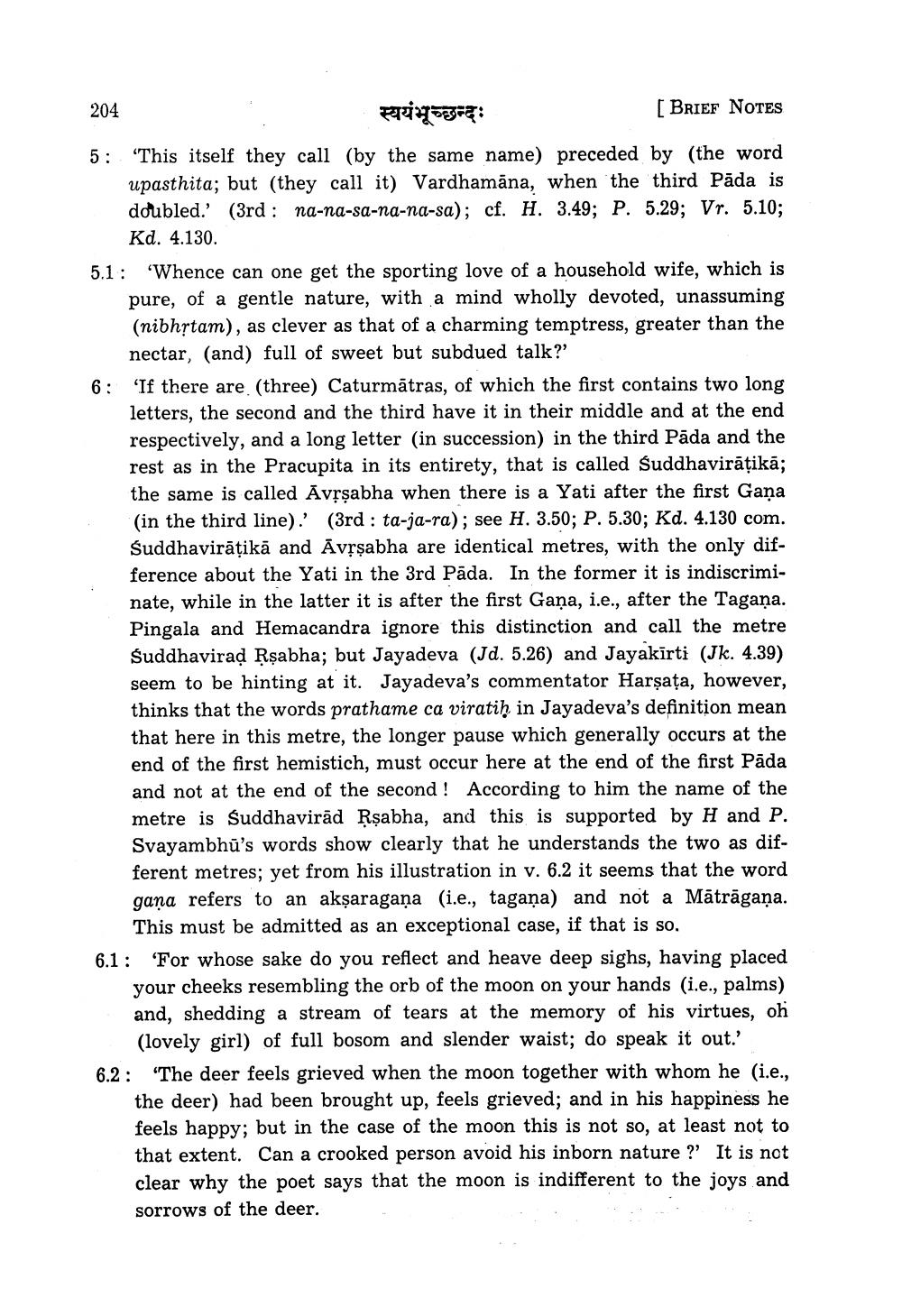________________
204 स्वयंभूच्छन्दः
[BRIEF NOTES 5: "This itself they call (by the same name) preceded by (the word
upasthita; but they call it) Vardhamāna, when the third Pāda is doubled.' (3rd : na-na-sa-na-na-sa); cf. H. 3.49; P. 5.29; Vr. 5.10;
Kd. 4.130. 5.1: 'Whence can one get the sporting love of a household wife, which is
pure, of a gentle nature, with a mind wholly devoted, unassuming (nibhstam), as clever as that of a charming temptress, greater than the
nectar, (and) full of sweet but subdued talk?' 6: 'If there are (three) Caturmātras, of which the first contains two long
letters, the second and the third have it in their middle and at the end respectively, and a long letter (in succession) in the third Pāda and the rest as in the Pracupita in its entirety, that is called Suddhavirātikā; the same is called Avrsabha when there is a Yati after the first Gaņa (in the third line).' (3rd : ta-ja-ra); see H. 3.50; P. 5.30; Kd. 4.130 com. Śuddhavirātikā and Āvrşabha are identical metres, with the only difference about the Yati in the 3rd Pada. In the former it is indiscriminate, while in the latter it is after the first Gana, i.e., after the Tagana. Pingala and Hemacandra ignore this distinction and call the metre Śuddhavirad Rşabha; but Jayadeva (Jd. 5.26) and Jayakīrti (Jk. 4.39) seem to be hinting at it. Jayadeva's commentator Harșața, however, thinks that the words prathame ca viratih in Jayadeva's definition mean that here in this metre, the longer pause which generally occurs at the end of the first hemistich, must occur here at the end of the first Pāda and not at the end of the second ! According to him the name of the metre is Suddhavirād Rşabha, and this is supported by H and P. Svayambhū's words show clearly that he understands the two as different metres; yet from his illustration in v. 6.2 it seems that the word gana refers to an akşaragana (i.e., tagana) and not a Mātrāgana.
This must be admitted as an exceptional case, if that is so. 6.1: "For whose sake do you reflect and heave deep sighs, having placed
your cheeks resembling the orb of the moon on your hands (i.e., palms) and, shedding a stream of tears at the memory of his virtues, oh
(lovely girl) of full bosom and slender waist; do speak it out.' 6.2: "The deer feels grieved when the moon together with whom he (i.e.,
the deer) had been brought up, feels grieved; and in his happiness he feels happy; but in the case of the moon this is not so, at least not to that extent. Can a crooked person avoid his inborn nature ?' It is not clear why the poet says that the moon is indifferent to the joys and sorrows of the deer.




